Prostatitis refers to purely male pathology of the urinary and sexual systems.The disease can be acute or chronic, manifested in different ways in each patient.Today it is a common ailment of the genitourinary system.At the moment, the disease has been much younger and is already found in men aged 25 years.In this article we will consider the question: how prostatitis manifests itself, and its treatment.

Necessary information
The nature of the dysfunction of the prostate depends on a certain stage of sexual development of male persons:
- Damage to the prostate gland in young men who have not reached sexually maturity is possible.However, such an ailment is not considered a separate disease due to the underdevelopment of the gland;
- Men who have a violent sex life are more often subjected to prostatitis in the form of an acute inflammatory process;
- The disease of the prostate in adult men is manifested in the form of one of three ailments: benign and malignant tumor, chronic prostatitis.
People who have passed any of the types of removal of the reproduction organs are deprived of the functioning of the prostate.
The prostate is an subordinate gland of the reproductive apparatus in a strong half.It is located on the connection of the urinary channel and the sequamary of the tunnel.The significance of the prostate in young men before sexual activity did not give in to research.In an adult, the prostate is responsible for:
- the formation of a secret that makes the seed fluid less viscous and allows spermatozoa to survive in the way to the egg;
- Education in the body is prostaglandin.This is a component that is responsible for the increased blood flow to the genital organ before the formation of an erection.It also contributes to the production of hormone testosterone;
- is responsible for the high rate of emission of seed fluid during ejaculation, and also participates in the appearance of the final moment of sexual intercourse associated with the peak of intimate pleasure;
- With the help of reflexes, it does not allow the penetration of urine into the seed fluid during intimate relationships.
The prostate gland is a weakly protected organ for pathogenic microbes.It directly depends on the pathological states of the pelvic organs.A large current of blood and lymph, which moves through the vessels of the damaged prostate, entails the phenomena of stagnation and edema, thereby aggravating the inflammation.In the gland there is a large number of nerve fibers, so pathology is manifested by pain.
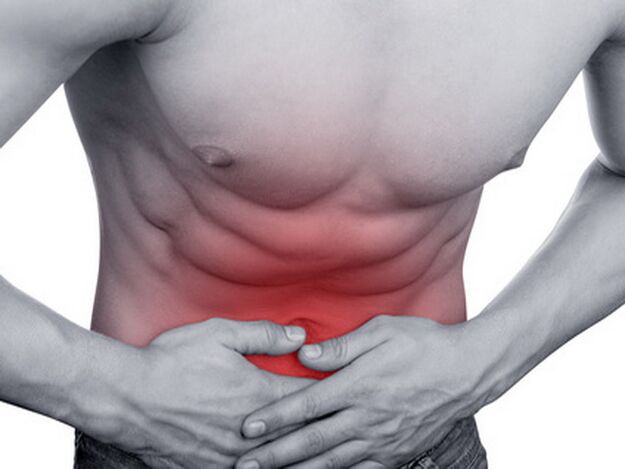
Prostatitis is inflammatory damage to the prostate gland.The most common cause of this ailment is the infections of the pelvis.But the infection in itself is not capable of causing inflammation, for this it is necessary to have predisposing factors.This category includes:
- measured lifestyle (in the risk zone, people who have a sedentary work);
- regular stool delays;
- numerous hypothermia;
- too active intimacy and long periods of abstinence;
The prostate is a small organ in its dimensions, and its weight is approximately 20-25 grams.But the secret of the gland has the ability to detriment with microbes, so inflammation in the prostate occurs with stagnation, then the secret loses its bactericidal property.
Manifestations of prostatitis
There are two stages of the disease:
The acute form is manifested by severe inflammation in the prostate gland.In the patient, the temperature of up to 39 degrees is increased, pain is observed in the inguinal zone and in the process of highlighting feces and urine.These are the first characteristic symptoms of prostatitis.
In the chronic course, these symptoms are smoothed out, therefore, many male representatives do not pay attention to the characteristic manifestations of the disease.The patient may have a temperature rise of up to 37 degrees, painful sensations during deurization and defecation.However, the main feature of chronic prostatitis is contained - this is the release of a small amount of mucous or purulent contents from the urethra.
Distributing factors
There are 6 first symptoms of prostatitis-this is a failure in the process of deurization due to a complicated withdrawal of urine from the bladder with compression of the urethrazal canal with an extended prostate gland (dysuria syndrome):
- urine selection by drops;
- painful sensations;
- a stream of urine without pressure and no further than 20 cm;
- stream intermittence;
- Frequent calls for deurization at night;
- A feeling of incomplete devastation of the bladder.
Important!It is forbidden to diagnose prostatitis in the detection of these symptoms without a thorough examination.This ailment has a very complex process of origin and development, which includes various mechanisms.
You cannot resort to the treatment of the disease on the basis of only clinical manifestations.You should immediately contact a specialist to make an accurate diagnosis and prescribe therapeutic measures.Diagnosis and therapy are prescribed taking into account organs and systems affected by the disease.In some cases, consultation of other specialists is needed.
Signs of the disease
Prostatitis can show both an acute form of the inflammatory process and chronic.The acute course is characterized by inflammation of the mucous membrane, follicles and parenchyma, but do not confuse them with symptoms of prostate adenoma.And chronic - is manifested by concomitant ailments.
Symptoms of prostatitis in men detected by clinical and functional examinations:
- Far -hearted urination
A normal man’s calls for deurization can be up to 12 times a day, usually 5 times.The volume of urine in a healthy patient per day is from 1 to 2 liters.The calls to deurization in a healthy man occur when filling a bladder with a volume of 120-170 ml.The accumulation of urine over 350 ml creates the most important desire to urinate.
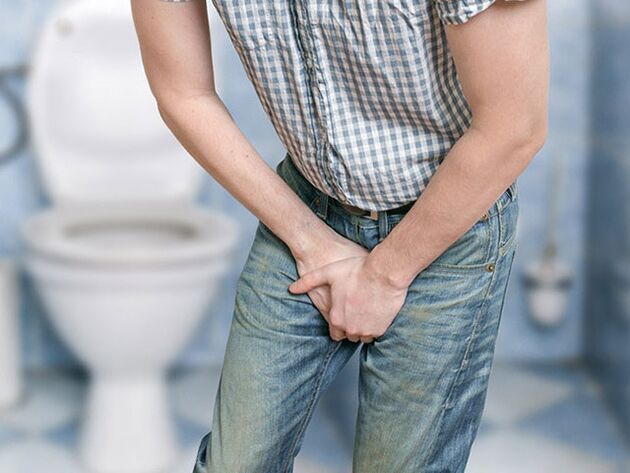
In the inflammatory process, the walls of the bladder are systematically irritated and the deurization becomes:
- frequent, while the amount of urine is within normal limits;
- In a small quantity: products of the inflammatory process are irritated by the bladder receptors, and false urination appears to deurication, a feeling of a crowded bladder, after its devastation there is a feeling of its fullness;
- painful due to narrowing of the urethra;
- It is difficult due to compression of the urethra with a gland, sometimes it is manifested by the inability to empty the bladder with its overflow;
- frequent at night;
- temperature.
As a rule, the temperature rises from 37 to 38 degrees.At the initial stage of sepsis with purulent gland inflammation, the temperature rises over 39 degrees.At the last stage of septic shock, the temperature, on the contrary, drops to 35 degrees.A reduced temperature is a threat to human life due to impaired platelet coagulation.The outcome with prostatitis with a complication in the form of sepsis is unfavorable.
- The presence of blood in Urin
It is quite rare, but it is a dangerous sign of the course of the disease.Constant bleeding is almost impossible to stop.There are several reasons for the development of hematuria:
- with perforation of the vessel in the urethra;
- trauma obtained during the study;
- malignant hyperplasia;
- pain.
Inflammation of the prostate with an attached complication is accompanied by constant pain.It can rarely be periodic.Most often, the pain is stupid or aching and manifests itself in the perineum and anus.
Laboratory methods
Assigned to clarify the stage of the disease:
- Blood test.With a prostate, an increased content of leukocytes is revealed, an increase in the velocity of erythrocyte settings and a shift of the leukocyte formula in the direction of stick -core cells;
- Urine analysis.Determines purulent contents in urine and the presence of bacteria.The study of 3 jars is used: 3 portions of urine are taken at the beginning, middle and end of deurination.A large study of urine with an interval after a few days allows you to identify a change in the flora of bacteria;
- Bacteriological sowing of blood.It is prescribed with developing blood poisoning with daily temperature fluctuations 3-5 degrees.
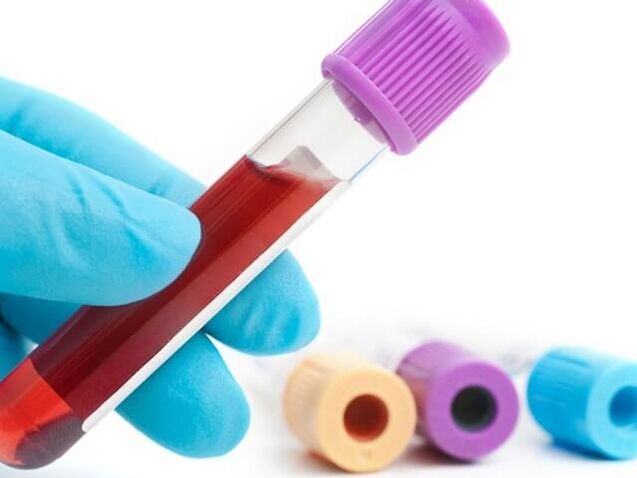
Instrumental research
- Ultrasound through the rectum.To clarify the diagnosis, is the most informative method.This study has contraindications.
- X -ray method.Before the study, contrast matter is introduced into the bladder.
- Exception of a piece of tissue for microscopic examinations is used for limited indications.
The causes of prostatitis
Experts distinguish several classifications, why a man could have prostatitis:
- a complication of the symptoms of any diseases that affect a person before or the negative effect of gynecological ailments in a partner;
- Urethral reflex.The functioning of the prostate is fraught with the inability to stop the reverse flow of urine.When this liquid reaches the genital canals, it is called urethral reflex.Subsequently, bacterial glanding of the gland is formed.Such a disease is a consequence of inflammatory processes in the urethra or improper introduction of the catheter.There is also an expansion of the lumen of the urethral channel;
- An unusual image of an intimate life.If the man’s number of sexual relations is greatly increased in a man, this can contribute to the development of prostatitis.Also, the reason for worrying is constant deaches of ejaculation;
- The venous blood stop in the genitals in the pelvis.This happens in the absence of a sufficient amount of active movements, sports;
- Hormonal disorders caused by small production of hormones formed in the sex glands.Due to such pathology, the general malaise of skeletal and smooth muscles and other ailments arise.

Types of prostatitis
There are two separations of this disease: bacterial and non -bacterial.
The first type is characterized by the fact that the ailment occurs due to the presence of pathogenic microbes that have penetrated the body from the external environment.Staphylococci, streptococci, E. coli and many others fall into the category of harmful microorganisms.In addition, this classification of prostatitis includes cases when the disease is caused by the transmitted disease transmitted through sexual intercourse.
For the second, non -bacterial appearance, there are also several divisions:
- Stagnant prostatitis.In this case, the disease of the gland is caused by a stagnant characteristic in the pelvic area.Increased ejaculation, an excessive number of acts of intimacy, long abstinence, incomplete conduct of sexual intercourse are usually leading to this outcome.
- Sclerotic prostatitis.It is characterized by a decrease in size and a decrease in the function of the prostate.The woven shell is compacted due to the death of the prostate cells and their degeneration into a solid connective tissue.The reasons for this type are frequent defecation disorders in the form of a difficult, slow effect of the intestine, taking some drugs and numerous infections.This type of inflammation of the prostate is incurable.
- Calcular prostatitis.In this type of inflammation, the presence of stones in the gland is revealed.Having reached large sizes, they provoke severe pain in the urethra.Therapy consists in removing stones with surgical or therapeutic methods.
- Prostatodini.It is characterized by the presence of constant pain in the pelvic area, the causes of which are not studied.Presumably, it can be caused by a reverse secretion of secretion, a disease of the neck of the bladder, damage to muscle tissue between the anus and the detergent organs, and the psychological factor is not excluded.
- Atypical prostatitis.The patient may show complaints of soreness in the lower extremities, the lumbar region and the sacrum, which is not present with typical forms of prostatitis.The result of therapy is directly related to the duration of the course of the disease, the presence of complications and the severity of the inflammatory process.

If the treatment is started at the wrong time, or there is a re -exacerbation of prostatitis, then inflammation goes into a severe form, which is fraught with serious complications: a decrease in potency, the inability to conceive a child, depressive states, severe pain, prostate adenoma in men.
Complications
Everything will directly depend on age, immunity, bad habits and timeliness of treatment.So, in elderly people with a reduced immune system complicated by excessive use of alcohol -containing products, the consequences will be very severe.
Action on potency.Damaged gland lowers the production of hormones that are responsible for the onset of an erection.Complications are the lack of completeness of sensations during intimacy, a weak release of seed fluid, signs of prostate adenoma in men and impotence.
Influence on the conception of a child.The inflamed prostate greatly reduces the production of the normal secretion necessary for the activity of sperm in the female reproductive organs for fertilization.The secret, when the girl’s intimacy in the birth canal, is subjected to immune thawing, which leads to the impossibility of fertilization of the egg.
Other complications.With exacerbation of prostatitis, the risk of accumulation of pus in the tissues of the gland increases.Pain with prostatitis intensifies.When a secondary infection is attached, the epithelium is melted with the subsequent appearance of the capsule near the inflammation.The consequences also include an acute form of urinary delay, urolithiasis, the appearance of prostate adenoma in men and others.
Intimacy with inflammation
It has already been proven that the main causes of prostatitis are the lack of sexual relations with increased excitability or excessive sexual activity.Regular ejaculation with normal frequency has a favorable effect at the initial stages of prostatitis.In some procedures and stages of the disease, they are temporarily forbidden to engage in intimacy.You can find out more detailed information by consulting with a specialist.
Important!During the treatment of prostatitis, you can make love, but only in compliance with safety and moderation in relations, unless otherwise prescribed by a doctor.
Prostatitis is a purely male disease.But inflammation of the gland is a risk to the health of a partner.It poses a threat to the conception and bearing of the unborn child.A healthy way of life and reliable contraceptives is an effective way to protect partners from complications.
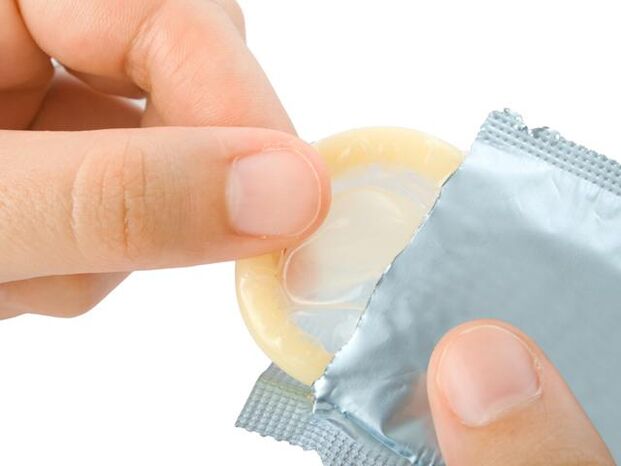
Treatment of prostatitis
It is possible to completely recover and stop the further development of the disease only with timely contacting a specialist.In this case, you will achieve a positive result.If irreversible changes appear, it is not possible to completely get rid of the disease.As a rule, re -inflammation occurs with the transition to the chronic type.
Along with drug treatment, an important point is whether the patient is ready to change his lifestyle (for example, irregular intimate relationships or a sedentary lifestyle).If the patient does not want to change his usual way of life, then soon the disease will again make itself felt.It is precisely with the fact that the patient does not want to change these negative factors, and the concept is connected that prostatitis is not treated.
Options for treatment, its period of time will be prescribed by a specialist after a complete examination and establishing the cause of the occurrence.The main drug during treatment is antibiotics.Vitamins, physiotherapy, taking analgesics and anti -inflammatory drugs are also recommended.Exacerbation of prostatitis occupies a longer period of treatment.
Diet
With proper nutrition mode and the use of certain products, you can achieve:
- reduction of pain;
- improving blood movement and lymph in the vessels of the prostate;
- increasing the immune system;
- normalization of intestinal work;
- reducing urine formation in the night period.
The following products must be excluded from the diet:
- Coffee and spicy food - increase blood flow to the prostate, enhance pain.
- Fat, fatty meat, eggs, flour products - increase the formation of cholesterol plaques on the walls of blood vessels, lower the movement of blood flow.
- Alcoholic products - reduces the immune system of the body.
- Food with rough fiber and salty - violates the wave -like contractions of the intestinal walls.
- Excessive use of fluids (especially in the evening) - increases the content of fluid in the body, which leads to the appearance of swelling.
Recommended products: salads from fresh vegetables with oil olives, fruits, boiled meat of low -fat varieties, vegetables, juices and nuts.
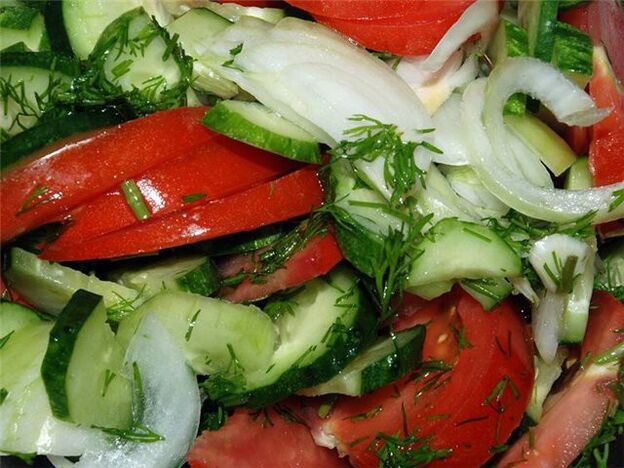
Prevention
Recommended:
- footproduction in a wide step (physiological walking);
- rational nutrition;
- a healthy way of life;
- use of male contraceptives;
- Moderate intimacy and more.
Conclusion
It is not necessary to wait for the manifestation of any ailments, but it is necessary for the preventive purpose of visiting the doctor once a year.Treatment with secondary exacerbation of prostatitis is much harder and takes a longer period of time, and is also fraught with its complications.
In this article we learned how inflammation of the prostate gland manifests itself, and what pains are with prostatitis, how to treat this ailment.





























